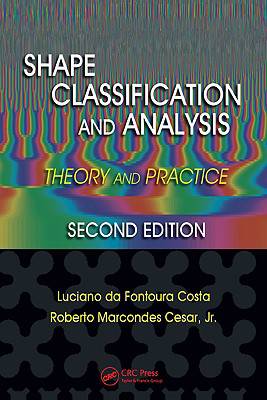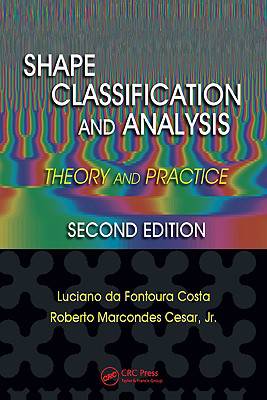
- Retrait gratuit dans votre magasin Club
- 7.000.000 titres dans notre catalogue
- Payer en toute sécurité
- Toujours un magasin près de chez vous
- Retrait gratuit dans votre magasin Club
- 7.000.0000 titres dans notre catalogue
- Payer en toute sécurité
- Toujours un magasin près de chez vous
Shape Classification and Analysis
Theory and Practice
Luciano Da Fona Costa, Roberto Marcond Cesar JrDescription
Because the properties of objects are largely determined by their geometric features, shape analysis and classification are essential to almost every applied scientific and technological area. A detailed understanding of the geometrical features of real-world entities (e.g., molecules, organs, materials and components) can provide important clues about their origin and function. When properly and carefully applied, shape analysis offers an exceedingly rich potential to yield useful applications in diverse areas ranging from material sciences to biology and neuroscience.
Get Access to the Authors' Own Cutting-Edge Open-Source Software Projects--and Then Actually Contribute to Them Yourself!
The authors of Shape Analysis and Classification: Theory and Practice, Second Edition have improved the bestselling first edition by updating the tremendous progress in the field. This exceptionally accessible book presents the most advanced imaging techniques used for analyzing general biological shapes, such as those of cells, tissues, organs, and organisms. It implements numerous corrections and improvements--many of which were suggested by readers of the first edition--to optimize understanding and create what can truly be called an interactive learning experience.
New Material in This Second Edition Addresses
- Graph and complex networks
- Dimensionality reduction
- Structural pattern recognition
- Shape representation using graphs
Graphically reformulated, this edition updates equations, figures, and references, as well as slides that will be useful in related courses and general discussion. Like the popular first edition, this text is applicable to many fields and certain to become a favored addition to any library.
Visit http: //www.vision.ime.usp.br/ cesar/shape/ for Useful Software, Databases, and Videos
Spécifications
Parties prenantes
- Auteur(s) :
- Editeur:
Contenu
- Nombre de pages :
- 692
- Langue:
- Anglais
- Collection :
Caractéristiques
- EAN:
- 9780849379291
- Date de parution :
- 01-04-09
- Format:
- Livre relié
- Format numérique:
- Genaaid
- Dimensions :
- 155 mm x 236 mm
- Poids :
- 1097 g

Les avis
Nous publions uniquement les avis qui respectent les conditions requises. Consultez nos conditions pour les avis.






